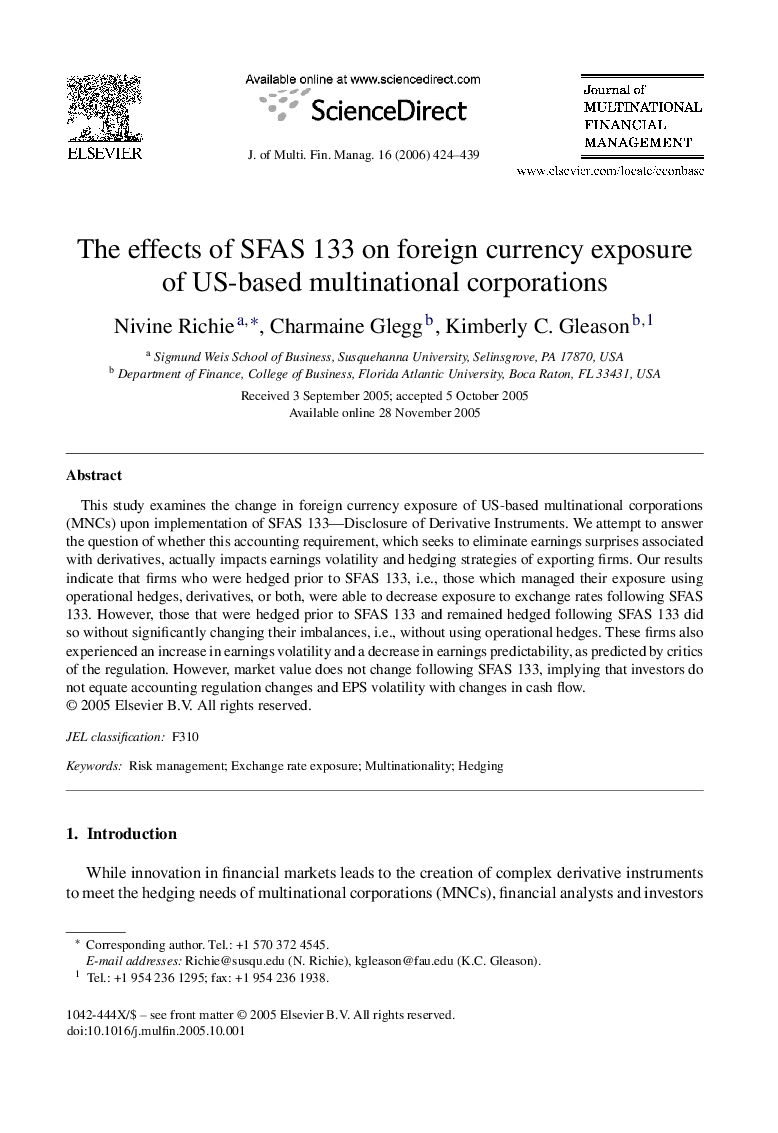| Article ID | Journal | Published Year | Pages | File Type |
|---|---|---|---|---|
| 967570 | Journal of Multinational Financial Management | 2006 | 16 Pages |
This study examines the change in foreign currency exposure of US-based multinational corporations (MNCs) upon implementation of SFAS 133—Disclosure of Derivative Instruments. We attempt to answer the question of whether this accounting requirement, which seeks to eliminate earnings surprises associated with derivatives, actually impacts earnings volatility and hedging strategies of exporting firms. Our results indicate that firms who were hedged prior to SFAS 133, i.e., those which managed their exposure using operational hedges, derivatives, or both, were able to decrease exposure to exchange rates following SFAS 133. However, those that were hedged prior to SFAS 133 and remained hedged following SFAS 133 did so without significantly changing their imbalances, i.e., without using operational hedges. These firms also experienced an increase in earnings volatility and a decrease in earnings predictability, as predicted by critics of the regulation. However, market value does not change following SFAS 133, implying that investors do not equate accounting regulation changes and EPS volatility with changes in cash flow.
